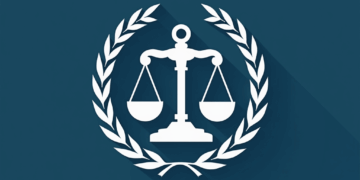No products in the cart.
Definition and legal basis (Section 138 BGB) In civil law, immorality refers to a violation of a legal transaction against the sense of decency of all fair and just thinkers. According to Section 138 (1) of the German Civil Code (BGB), a legal transaction is void if it is contrary to public decency. This legal standard serves to ensure basic ethical standards in legal transactions and protects parties from contracts that run counter to fundamental moral and social values. The general views of society at the time the contract is concluded and the specific circumstances of the individual case are decisive in assessing whether a contract is immoral.
Key Facts
- Immorality is a breach of good morals that leads to nullity in accordance with § 138 BGB.
- Usury is used in § Section 138 (2) BGB defined as the exploitation of predicaments and weak will.
- Contracts that disproportionately restrict economic freedom or personal freedom are immoral.
- Courts always review immorality with an open mind and consider all circumstances of the individual case.
- Immorality under tort law is dealt with in § 826 BGB and concerns intentional compensation for damages.
- The nullity of an immoral legal transaction does not lead to any contractual claim, but protects against unfair practices.
- The prohibition of immorality ensures ethical standards in business life and regulates unfair business practices.
Usury (Section 138 (2) BGB) as a special case of immorality A specific special case of immorality is usury, regulated in Section 138 (2) BGB. Usury occurs when a contracting party takes advantage of a predicament, inexperience, lack of judgment or considerable weakness of will on the part of the other party in order to obtain a promise of performance that is conspicuously disproportionate to the consideration. Such a contract is void, whereby the courts typically assume a conspicuous disproportion if the value of the consideration is approximately twice as high as the performance received. This regulation prevents contracts from being exploited to the detriment of people who are particularly worthy of protection.
Typical examples of immoral contracts In addition to usury, so-called “gagging contracts” are also considered immoral, i.e. contracts that disproportionately restrict the economic or personal freedom of one party. Also recognized as immoral is the so-called overcollateralization in credit security law, in which a lender demands significantly more collateral than is necessary to cover its risk, thus placing an excessive burden on the guarantor. In employment law, immorality exists, for example, if employees are paid extremely low wages that are less than half of the usual local or industry wage. Such contracts are invalid and must be adjusted accordingly.
Open-minded examination of im morality by the courts The examination of immorality by the courts is always open-minded. This means that there is no blanket classification, but that all circumstances of the respective case must be carefully assessed. In doing so, the court takes into account, among other things, the objective terms of the contract, the subjective intentions of the contracting parties and the general social notions of decency and fairness at the time the transaction was concluded. The application of Section 138 BGB therefore always requires a differentiated, case-by-case assessment.
Immorality under tort law in accordance with Section 826 BGB In addition to the contract law provision of Section 138 BGB, there is a separate provision on immorality in tort law. According to Section 826 BGB, anyone who intentionally causes damage to another person in a way that is contrary to public decency is liable for damages. This provision is aimed in particular at cases in which intentional and particularly immoral behavior, such as fraud or deliberate deception for purely selfish motives, causes damage to another person. Examples of such tortious cases of immorality are systematic investment fraud or deliberate damage to reputation for economic gain.
Legal consequences and practical significance of immorality The legal consequence of immorality is usually the nullity of the legal transaction in question. This means that the parties cannot derive any contractual claims from it and any payments already received may have to be reversed in accordance with the provisions on unjust enrichment (Sections 812 et seq. BGB). In the case of Section 826 BGB, the injured party also has a claim for damages. The prohibition of immoral legal transactions and actions therefore has considerable practical significance for legal certainty and fairness in business life, as it sets clear ethical boundaries.
Summary and purpose of the prohibition of immorality Overall, the prohibition of immorality serves to prevent or reverse legal transactions that do not formally violate specific legal provisions, but which ultimately appear to be morally reprehensible and socially unacceptable. This prohibition makes a significant contribution to enforcing fundamental ethical standards in legal transactions and serves as a flexible instrument for reacting appropriately to unfair and indecent business practices.





















